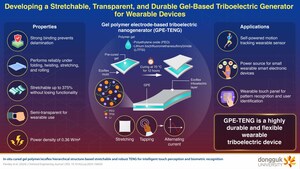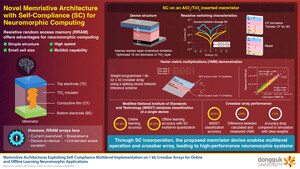Dongguk University Study Reveals Factors Influencing Colorectal Cancer in Korea
SEOUL, South Korea, Feb. 15, 2022 /PRNewswire/ -- Colorectal cancer has become a great healthcare burden in Korea. To find out why, scientists at Dongguk University in Korea examined the cancer caseloads against the distribution of dietary and lifestyle factors observed in the population. In a novel insight, they found that risk factors for this cancer differ by age and sex, suggesting that blanket prevention measures may not be sufficient for a healthier future.
Colorectal cancer (CRC) places an enormous burden on public health in South Korea. In 2018, the country had the second-highest number of CRC cases worldwide. While genetic factors are responsible for cancer, the risk factors for CRC have been strongly linked to certain dietary and lifestyle choices, such as smoking, increased alcohol consumption, low physical activity, and high processed meat intake.
But that is global data. Does it apply to Korea specifically? A team led by Professor NaNa Keum from Dongguk University, Korea, has now decided to find out. In their study, they examined the trends in CRC incidence rates between 2001 and 2013, and compared them to the changing dietary and lifestyle behavior in the country during that time. "We aimed to identify major modifiable lifestyle factors underlying the alarming increase in CRC incidence in Korea specifically," says Prof. Keum.
The findings of the study were published in the Journal Scientific Reports on January 28, 2021.
In their analysis, the researchers found an increase in the CRC caseload, with a higher prevalence in men compared to women. While most diagnosed cases were of late-onset CRC, there was a notable increase in early-onset cases among middle-aged adults (ages 30–49). Across all sex and age groups, decrease in exercise was a contributing factor for the increasing CRC trend. For men, obesity and increased alcohol consumption were observed to be major risk factors. For middle-aged women, there were significant increases in alcohol consumption, smoking, and processed meat consumption, likely contributing to the increase in early-onset cases. "Our findings do not prove the causal effects of risk factors on increasing CRC rates, but rather provide suggestive evidence that the risk factors differ by age and sex," notes Prof. Keum.
Speaking of the implications of these findings, Prof. Keum says, "Targeted public health interventions will be required to effectively reduce the CRC rate in Korea. A tailored approach, rather than generic lifestyle interventions, will help prioritize limited resources and induce greater compliance from people."
Hopefully, following on the footsteps of such studies, necessary measures can be taken to reduce the burden of CRC in Korea in the foreseeable future.
Reference
Authors: Hayeong Khil1, Sung Min Kim2, SungEun Hong1, Hyeon MinGil1, Eugene Cheon1,
Dong Hoon Lee3, YoungAe Kim4 & NaNa Keum1,3
Title of original paper: Time trends of colorectal cancer incidence and associated lifestyle factors in South Korea
Journal: Scientific Reports
DOI: https://doi.org/10.1038/s41598-021-81877-2
About Dongguk University
Website: http://www.dongguk.edu/mbs/en/index.jsp
Media contact:
NaNa Keum
[email protected]
+82 2-2260-3740
SOURCE Dongguk University

WANT YOUR COMPANY'S NEWS FEATURED ON PRNEWSWIRE.COM?
Newsrooms &
Influencers
Digital Media
Outlets
Journalists
Opted In




Share this article